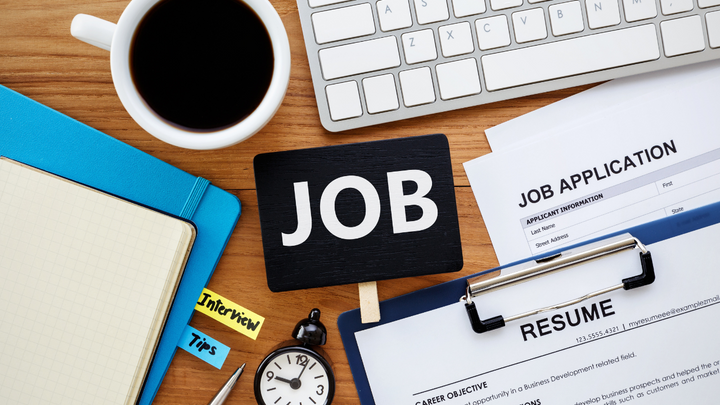6 Surefire Ways to Make a Great First Impression in Any Professional Setting
Make a lasting impression in your next business meeting or interview with these 6 expert tips. From dressing appropriately to showing interest in others, learn how to succeed in any professional setting.

Making a good first impression is crucial in any professional setting. Whether attending a job interview, meeting with a potential client, or starting a new job, how you present yourself can make all the difference. It's common knowledge that first impressions are important, but we often forget the simple things that can make or break them. In this blog, I'll share some personal examples and tips on how to make an excellent first impression.
Dress appropriately
How you dress is the first thing people notice about you, setting the tone for the rest of your interactions. Dressing appropriately means different things in different settings, but a good rule of thumb is to dress slightly better than you would on a typical day at work. If you're unsure what to wear, it's always better to err on the side of caution and dress more formally.
I learned this lesson the hard way when I attended an interview for a job at a startup company. I assumed that I could dress casually, too, since it was a casual environment. I wore a t-shirt and jeans, only to find that everyone else was dressed in business casual attire. I immediately felt out of place and unprepared, and I could tell that the interviewer was unimpressed with my lack of effort. Needless to say, I didn't get the job.

Body language
Your body language speaks volumes before you even say a word. Simple things like making eye contact, smiling, and standing up straight can make a big difference in how you are perceived.
I remember a time when I met with a potential client for the first time. I was nervous and unsure of myself, which showed in my body language. I slouched in my chair, avoided eye contact, and fidgeted with my pen. The client seemed uninterested and distant, and I left the meeting feeling defeated. I realized later that my body language was a major factor in the outcome of the meeting. Since then, I've made a conscious effort to improve my posture and maintain eye contact during meetings.
Be punctual
Being on time shows respect for other people's time and demonstrates that you are reliable and responsible. Arriving late, on the other hand, can give the impression that you are unprepared or disorganized.
I once had a job interview with a company located in a busy city center. I left my house with plenty of time to spare, but I didn't factor in the rush hour traffic. As a result, I arrived 15 minutes late for the interview, flustered and out of breath. The interviewer was polite but clearly unimpressed, and I knew my chances of getting the job had plummeted. Since then, I always factor in extra time for unexpected delays, and I make a point of arriving early for meetings and interviews.

Do your research
Before any meeting or interview, it's essential to do your research on the company or person you'll be meeting with. This shows that you are interested and invested in the interaction and helps you to ask informed questions and make relevant comments.
I once met with a potential client whom I knew very little about. I assumed I could wing it and make up for my lack of knowledge with charm and charisma. However, I quickly realized that I was out of my depth, and the client seemed to sense it too. They asked me specific questions about their industry and competitors, and I had to admit that I didn't know the answers. I left the meeting feeling embarrassed and unprepared. Since then, I always do my research beforehand and come prepared with relevant information and questions.
Be mindful of your language
The way you speak and the language you use can also make a big difference in how you are perceived. Using appropriate language, avoiding filler words, and speaking clearly and confidently can all contribute to making a good first impression.
I once attended a networking event where I was introduced to someone who spoke in a very monotone and disinterested tone. They frequently used filler words such as "um" and "like," making it difficult to understand their points. I found myself struggling to maintain interest in the conversation and felt that they were not interested in speaking with me either. On the other hand, I've also met people who spoke confidently and articulately, using language appropriate for the setting. They were able to convey their ideas and made a lasting impression on me.
Show interest in the other person
One simplest but most effective way to make an excellent first impression is to show interest in the other person. This can be done by asking thoughtful questions, actively listening, and demonstrating empathy.
I once met with a potential employer who seemed very disinterested in me and my qualifications. They didn't ask many questions and seemed more focused on talking about themselves and their accomplishments. As a result, I didn't feel valued or heard and left the meeting feeling discouraged. On the other hand, I've also had meetings where the other person showed a genuine interest in my background and goals. They asked thoughtful questions and actively listened to my responses, which made me feel valued and respected.
Conclusion
Making a good first impression is a skill that can be learned and improved upon with practice. By dressing appropriately, using confident body language, being punctual, doing research, using appropriate language, and showing interest in the other person, you can create a positive and lasting impression in any professional setting. Remember, these tips may seem obvious, but it's easy to forget them in the heat of the moment. Being mindful and intentional in your interactions can make a strong first impression and set the tone for a successful relationship.




Comments ()